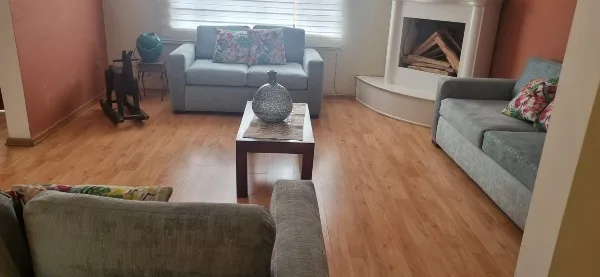Government adds more travel restrictions and a curfew as coronavirus lockdown takes effect
Hours before Ecuador’s coronavirus lockdown was scheduled to begin, President Lenín Moreno announced new restrictions on travel and personal movement, including the suspension of interprovincial bus and national air service, a nationwide nighttime curfew and rules for use of private motor vehicles.

Nurses at a coronavirus treatment center.
In addition, Moreno said that all but the most essential government services would be suspended to reduce face-to-face contact. Businesses that require personal contact were also ordered closed.
As of 6 a.m. Tuesday morning, Ecuadorians are under orders to remain in their homes except to buy food, go to work if it is allowed, to care for the elderly or disabled or to seek medical products or services.
“Government services engaged in ensuring public health and safety will continue to operate as usual,” Moreno said. “These include public health, police, military and first-responder emergency functions.”
The new measures come on a day when confirmed cases of the Covid-19 virus spiked from 37 to 58 and public health officials admitted that the number represented only the “tip of the iceberg.” Speaking anonymously, a Quito health ministry doctor said there are probably thousands of cases in the country. “At this point, the official count is of little use,” he said. “We must be prepared for difficult times ahead.”
The health ministry said it continues to monitor 273 suspected cases of the virus, most of them in Guayas, Los Rios and Pichincha provinces. It added that about 2,000 individuals are quarantined and under requirements to report their status to the ministry.
Moreno said the restrictions on personal movement, business activities, school closures and other measures will continue for 60 days but said this could change based on circumstances.
Businesses that will continue to function, according to government rules, include those involved in food production, delivery, sale and preparation as well as vendors of health care products and service, such as pharmacies and medical offices. Banks will also remain open. Grocery stores and public food markets will remain open, with stores admitting no more than 30 customers at a time with only one member of a family being allowed to shop.
The new control on private vehicle use imposes an odd-even license plate number system, with license plates ending in even numbers allowed on the streets on Tuesdays, Thursdays and Saturdays while license plates ending in odd numbers are allowed Mondays, Wednesdays, Fridays and Sundays. Driving is only allowed for trips to the grocery store and markets and for heatlh-related travel.
Interior Minister María Paula Romo said Monday that personal movement restrictions will be strictly enforced. “We will have police and military personnel on the streets throughout the country to enforce the rules,” she said. “If you are out of your house for purposes other than to purchase food or to buy medical services or products, you will be escorted home. Motor vehicles on the street without an acceptable reason will be confiscated.” She said violators are subject to fines but that arrests will be made as a last resort.
Romo added that enforcement efforts do not replace personal responsibility. “All the government’s efforts are of little value if residents do not appreciate the threat we face and work together to overcome it.”
A curfew will be enforced from 9 p.m. to 5 a.m., Romo said.





















